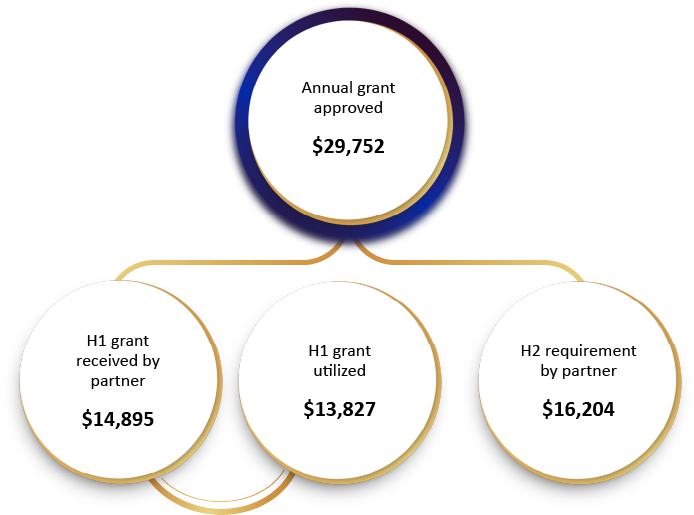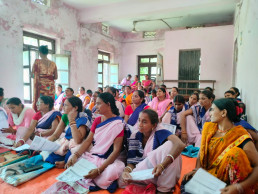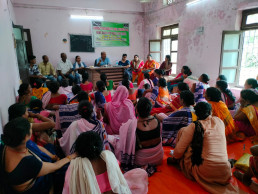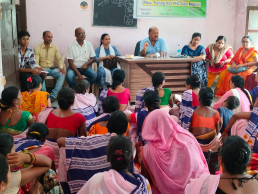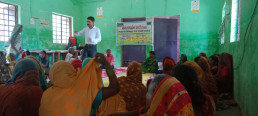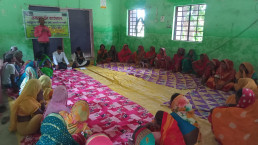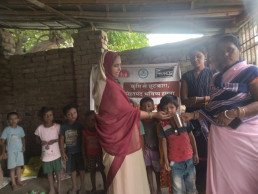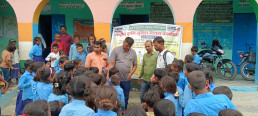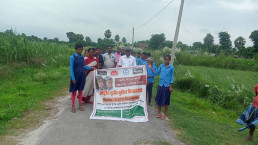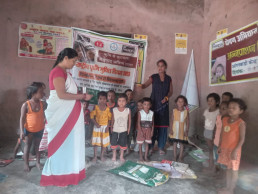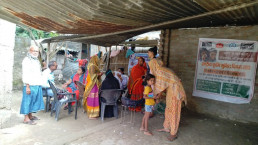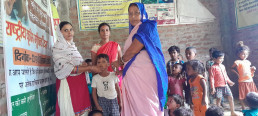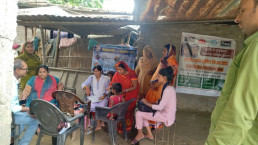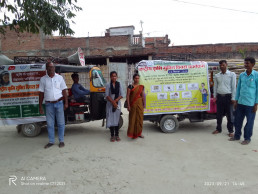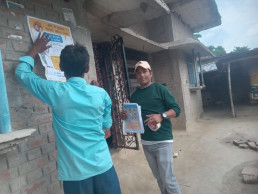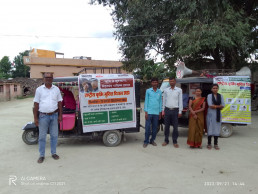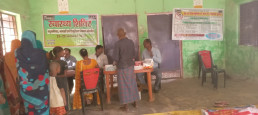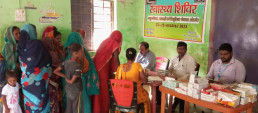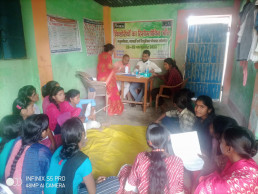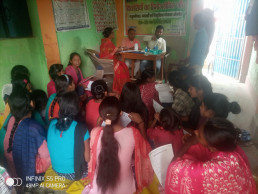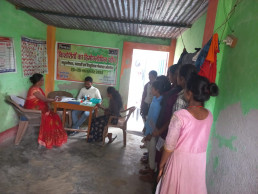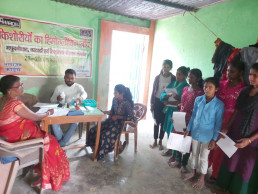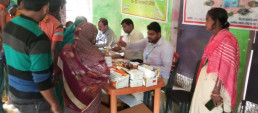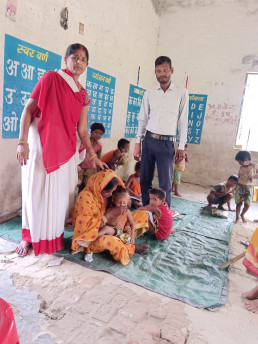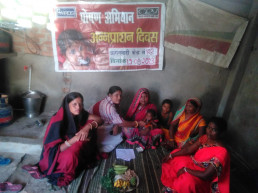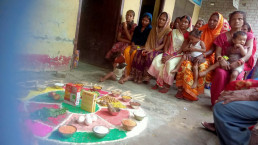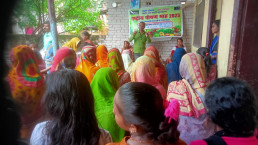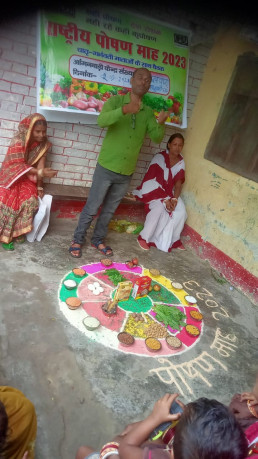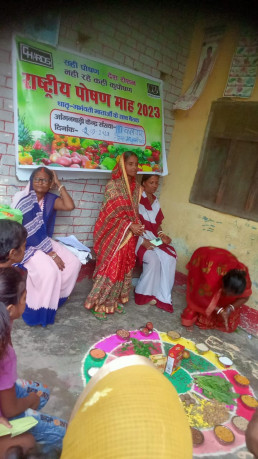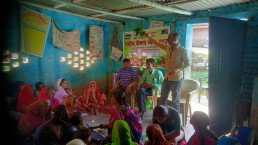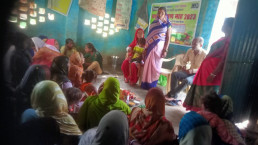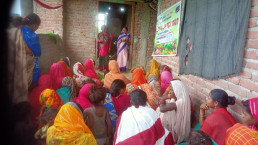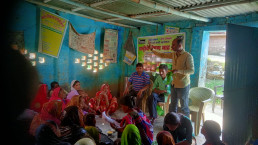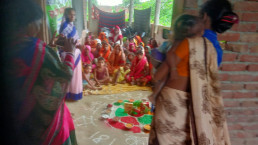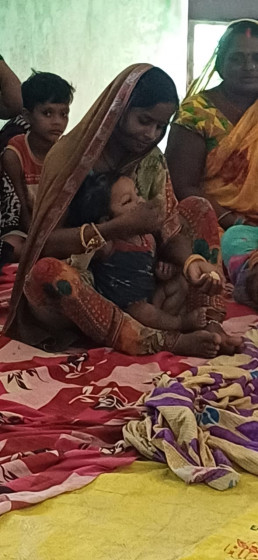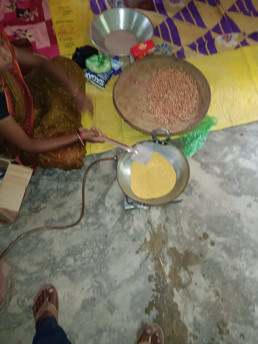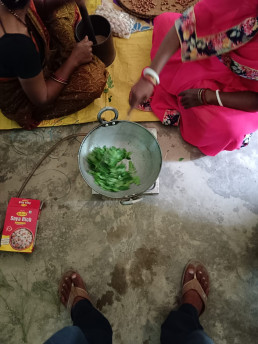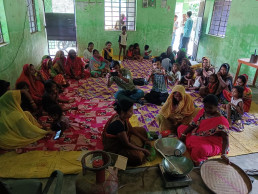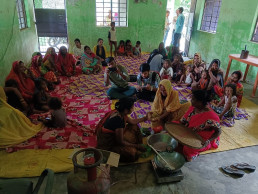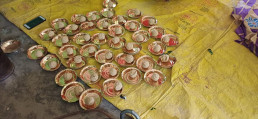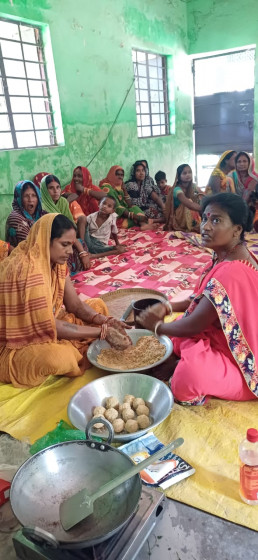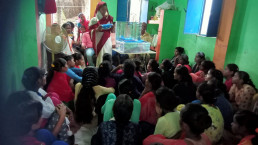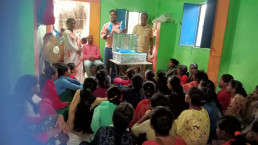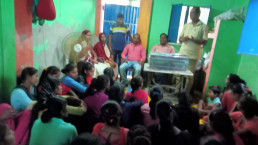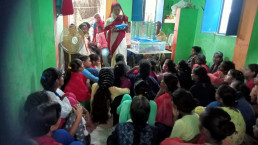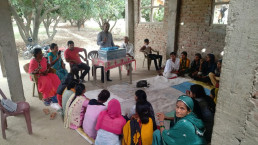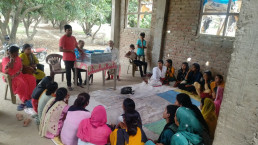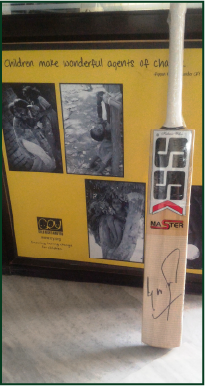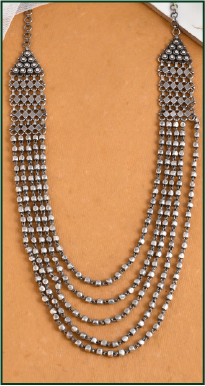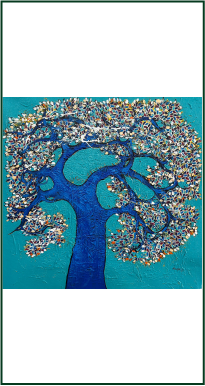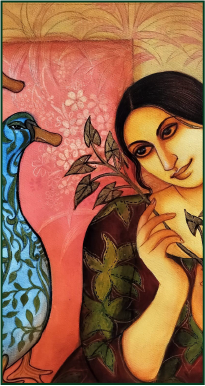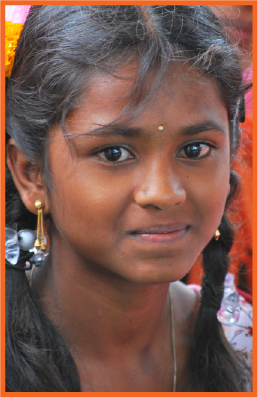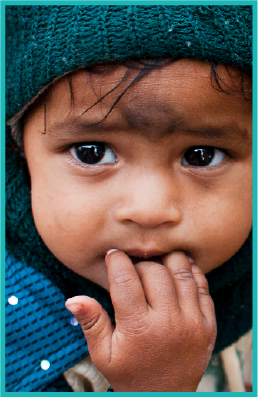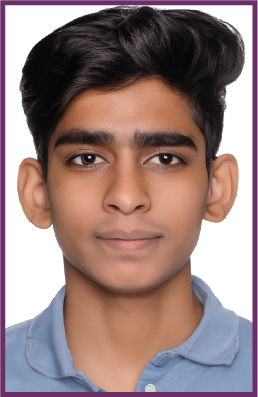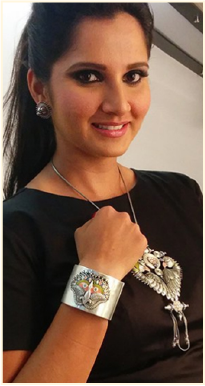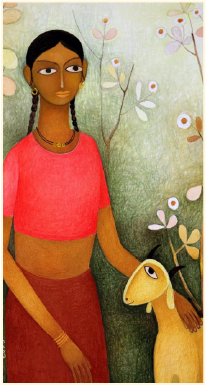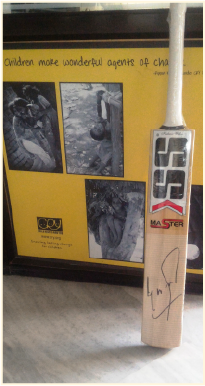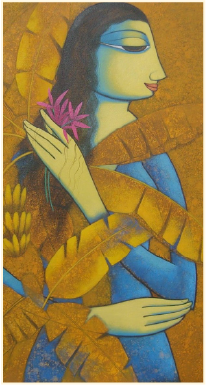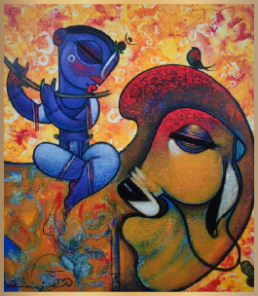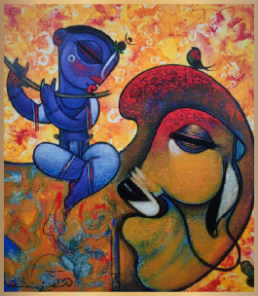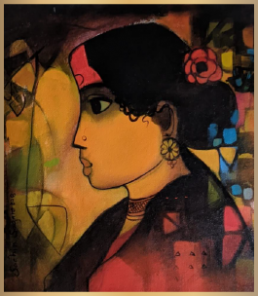Projects
Project SSRF 2024
Rescued and Empowered to Excel
Hailing from a backward community in Uttar Pradesh, Rita’s parents, struggling with a life of daily wage labor, decided to marry their daughter at the tender age of 14 to a 23-year-old auto driver named Raghu. One day after being engaged, when Raghu requested permission to take Rita out for a visit, her parents didn’t mind. However when she did not return home by evening, it led to her parents to panicking and reporting her missing.
The SSRF team, upon learning of Rita’s situation, conducted an extensive search alongside local police. They found Rita in a traumatized state.
They initiated legal action against Raghu who claimed to be a minor himself to keep severe penalties at bay, and insisted that Rita was an adult. The SSRF team used provisions in the Juvenile Justice Act to secure a 1.5-year jail term for Raghu. The team also requested proof of Raghu’s claimed minor status through the POCSO Act.
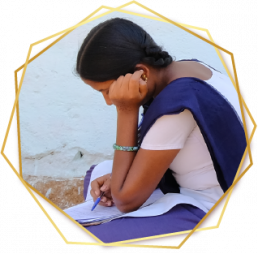
Rita’s parents, pressured to accept monetary compensation and close the case, were shielded by the SSRF team. Meanwhile, at home, Rita faced blame for the incident. The SSRF team provided continuous counseling to both Rita and her parents, encouraging her to pursue education and supporting her with books and coaching.
Despite numerous challenges, Rita is now focused on her studies, preparing for her 10th-grade board exams. The SSRF team continues to work with her family, her teachers & the community to ensure Rita not only receives justice but also triumphs over her challenges.
District Varanasi is highly critical in violation of child rights in the form of child marriage, child labor, child trafficking and gender discrimination. It has a clear link with the trafficking of girl children which impacts their health and reduces their chances of an education. All this affects their overall development
CRY America Project SSRF is working towards creating an enabling environment that empowers children to influence decision making on issues that affect them, creating informed, sensitized, empowered family members and community to stop child marriage, ensuring vigilant governance for child protection. The key activities taking place under the project are orientation meetings of children groups on child rights issues and developing their understanding, engagement with child protection structures in the district and in the entire state.
3286
children regularly going to school
102
out of school children mainstreamed in school
80
children educated at digital learning centers
413
children enrolled in remedial education
590
children participated in life skills sessions
479
potential child marriage cases identified and prevented

● Begin the CRY Child Activity Center module in 8 remedial centers to help 413 children improve their learning levels.
● Parents’ module will be implemented with 80 parents in the community
● Life skills module of CRY will be taken to 5 primary schools in engagement with education department.
● Strengthen the roles and responsibilities of 9 School Management Committee members (SMC)
● Conduct 90 activity-based learning meetings with SMC members to address barriers to children’s education
● Ensure continued education of 2368 children and mainstream 79 out of school children
● Ensure continued education of 1089 school going children and school enrolment of 287 out of school children
2023 Grant Disbursed $39,641

Project Sanlaap 2024
Breaking the Cycle of Vulnerability through Education
Deepa, a 17-year-old girl from Kolkata’s red light area, lived a life of hardship. Her mother, once a commercial sex worker, now works as a domestic cook, while her father struggles as a daily laborer. Despite the socio-economic challenges, Deepa’s dream of education remained steadfast.
Growing up amidst poverty, Deepa’s only help was that which she received from CRY America project Sanlaap’s child activity center, which provided remedial education and materials too. This helped her stay focused in school and continue her education. Her dedication paid off when she passed her 12th board exams. However, her academic journey faced a critical threat when her parents, burdened by financial pressures, wanted her to give up studying and support the family instead. But Deepa wanted to continue her education to break free from the cycle of poverty and exploitation

Project Sanlaap team along with local stakeholders, initiated a series of counseling sessions with Deepa’s parents. They highlighted the long-term benefits of education and assured support in terms of books and resources. Gradually, Deepa’s parents recognized the potential impact of continuing her studies and agreed to support her higher education.
Today, Deepa has applied for an admission into college and is eagerly awaiting the next steps in her academic journey. Like Deepa, many young girls with the project’s help are breaking the cycle of vulnerability and forging a path towards a better future.
*Name changed and image used for representation purpose only.
Kolkata’s red light areas are infamous for being one of the largest in Asia. One or more adult members in families here are engaged in sex trade. Because of the cycle of poverty, discrimination, and the kinds of social pressure children face in these locations, they are often at risk of being pushed towards becoming commercial sex workers themselves. Many are trafficked and child marriage is often used as a tool by the traffickers.
CRY America project Sanlaap works to prevent children from child trafficking, child labor and child marriage. Children are rescued from prostitution and child trafficking and are connected with survivor groups and counselled. The key activities which take place are strengthening of youth groups, enrolment of children from 6 to 18 years in school and youth led advocacy events.
120
vulnerable children accessing Child Activity centers
195
children provided with education support material
39
trafficked children reintegrated with families
92
children participated in life skills sessions
75
children participated in sports

● Life skills sessions for 270 children and youth
● Follow-up activities with 39 trafficking and unsafe migration survivors
● Strengthening of 1 survivor collective
● Economic Empowerment of 12 young adults to prevent second generation prostitution
2023 Grant Disbursed $24,473
2024 Grant Approved $29,578
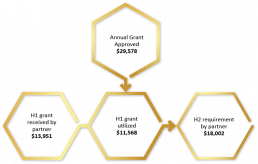
Project JJBVK 2024
A Journey of Resilience and Empowerment Against Societal Pressures
Prajan Kumari, a determined young girl from Bihar, was being forced into early marriage. Societal norms and pressures from her family threatened her dreams and aspirations. In the face of this adversity, Pranjan’s beacon of hope emerged in the form of crucial support from CRY America Project JJBVK.
With unwavering support and encouragement, Pranjan found her voice and purpose as she became an active member of the Adolescent Girls Collective. She not only discovered her own strength but also became a source of inspiration for her peers, showcasing the transformative power of collective action.
Pranjan persevered in her educational journey, navigating through challenges with determination and resilience. The Women and Child Development Department of Bihar honored her on the National Girl Child Day, 2024 for her unwavering commitment to empowerment.
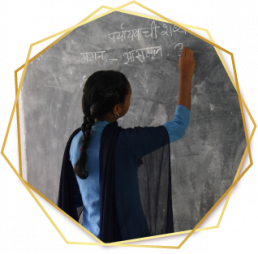
Through her journey, Pranjan continues to inspire countless others to challenge societal norms, pursue education and march towards an empowered future.
*Name changed and image used for representation purpose only.
Sarairanjan block is situated in the central part of Samastipur district in Bihar. The agro-based economy is mostly dominated by the upper caste. The communities are landless and depend on daily wage work. The dropout children start to work with their parents in nearby agricultural fields under the ownership of the landlord to support the family income. Migration starts among the boys from the age of 14 from these villages with their relatives to other states. The massive gender disparity is a big challenge in the community. Girls face a lot of discrimination. The fear factor of being harassed and security issues while traveling for higher education becomes a challenge for the girls. Mindset of parents on girl child education is of great concern as they have been considered as liabilities to the family.
RY America’s Project JJBVK works towards enrolment and retention of children in school. The project also focuses on reduction of child labor in the community and runs preventive program for addressing child marriage. Sustainable child driven collectives are formed and peer groups are created to support children. The key activities under the project are identification of children in 3-6 years who are not enrolled in the ICDS centers and initiating process to enroll them in the schools, home visit and motivating the children of 6-18 years age group for online education, campaign against child labor in the villages, discussion with adolescent group members and working on psycho –social issues, child marriage etc.
832
children (3-6 yrs) enrolled in ICDS
114
children cleared 10th board exam
70
child marriages prevented
40
children removed from child labor & enrolled in school
107
drop out or never been to school children (6-18 yrs), enrolled in remedial classes

● Establishing 2 model VSS Vidyalaya Siksha Samiti (VSS) covering 12 members
● Capacity building of 1000 children/ adolescents on life skill modules
● Conducting sports with 6 existing teams through peer coaches
● Developing a school wise plan to make the school RTE (Right to Education Act) compliant in 27 schools
● Sensitize 45 CBO members on issue related to education and protection
● Tracking of 6-14 years children in 27 schools
● Empowering the atleast 400 members children collectives to discuss issues like availability of teachers, textbooks, Mid Day Meals, toilet and infrastructure etc.
2023 Grant Disbursed $22,814

Project CHARDS 2024
Transforming Health and Hygiene in Pipariya Tola
Pipariya Tola, a small hamlet in Bardah village, East Champaran, Bihar, faces severe health and sanitation challenges. Situated in a flood-prone area, the village struggles with inadequate access to sanitary products. The nearest market, 2 kilometers away, makes obtaining these essentials a burdensome task, increasing health risks for adolescent girls and women. Economic hardship, compounded by the migration of male family members for labor, leaves many families unable to meet basic needs, including proper nutrition and hygiene.
Inspired by the success on a sanitary napkin bank in a neighbouring village and driven by their experiences and the need for better menstrual hygiene, the local women’s group in Pipariya Tola, expressed a strong desire for a similar solution in their own community.
This year, the project team organized a meeting with the women’s group to discuss establishing a local sanitary napkin bank, and selected a committed and vocal member from the group to manage the bank. Within a month, the initiative was set into motion.
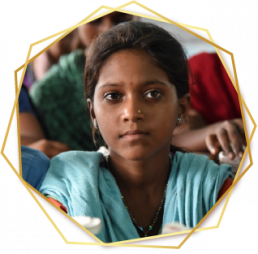
The inauguration of the Sanitary Napkin Bank coincided with a Menstrual Hygiene campaign, creating a vibrant and educational event. The women and adolescents not only received access to sanitary pads but also participated in informative discussions and watched educational content on menstrual hygiene.
This collaborative effort has significantly improved the health and hygiene in Pipariya Tola. The sanitary napkin bank has empowered women and adolescents to take control of their well-being, challenging longstanding taboos and fostering community-driven change.
In the Champaran district the existing health care facility is in dilapidated condition. The main barrier of accessibility is distance from the village, lack of medicines and non-availability of doctors. Due to inaccessibility of health services, the burden of home delivery is still prevalent. Maternal health and nutrition, as well as adolescent nutrition have important consequences for intergenerational transmission of malnutrition.
CRY America Project CHARDS has been working towards improved access to quality primary health care in 20 villages. The key activities of the project are sensitizing the community on various mother and child health issues, exploring alternatives for ensuring education of the children, and capacity building of adolescent and adolescent resource centers.
117
institutional deliveries ensured
117
women were linked to maternity benefit programs
891
mothers have started exclusive breastfeeding

20
kitchen gardens were established to address community-based malnutrition
300
adolescent girls from collectives sensitized about menstrual and personal hygiene as well as sanitary napkin banks

260
children were immunized

● Sensitizing communities on institutional delivery through 120 sessions
● Sensitizing 1114 lactating mothers on nutrition and supplementary feeding on a monthly basis.
● Awareness campaigns on WASH (Water, Sanitation, and Hygiene) program and menstrual health with 4 schools
● Conducting 3 model Village Health Sanitation and Nutrition Day, celebrating Breast Feeding Week and Nutrition Month in 20 Anganwadi centers and also with 14 adolescent girls collectives.
● Awareness and sensitizing parents of 13 Severely Underweight Children (SUW) to go to the Nutritional Resource Centre (NRC).
● Follow-up anemia screening of 144 adolescent girls and peer support to eradicate anemia.
● Capacity building of 20 families on preparing organic manure for kitchen garden
● Life skill sessions for 350 adolescent girls from collectives.
2023 Grant Disbursed – $21,549
2024 Annual Grant Approved: $28,880

Project Margadarshi 2023
From Child Labor to Education: Dhruv’s Journey*
A Story of Education and Determination
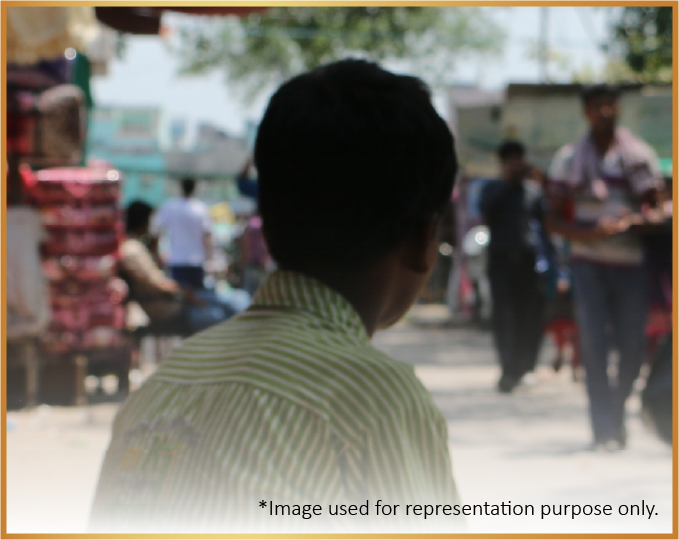
In the village of Kulakunda, Gulbarga District, Karnataka, child labor has been a concerning issue, affecting children like Dhruv, a 13-year-old boy whose parents had migrated to Bangalore for work, leaving him with his uncle and aunt. He had dropped out of school, forced into labor raising goats by his uncle.
Traditional approaches to address this issue had proven ineffective. Regular visits and follow-ups revealed Dhruv’s dire situation. Determined to make a difference, the project team adopted a fresh approach. They provided him with counseling, motivating him to value education. Through consistent support, he gradually returned to school, attending meetings and participating in activities.
The team helped Dhruv identify his strengths and interests and convinced his extended family to send him back to school. His reintegration was a success. He resumed his education, and within three months, he was back in the 8th grade.
Dhruv’s transformation was evident. He actively engaged in school and community activities. His journey showcased that, with commitment and community involvement, child labor could be combated.
The success of the team’s approach served as a model for addressing child labor in other communities, demonstrating the potential for positive change, one child at a time.
The Problem
Chittapur Block of Kalaburagi District in Karnataka faces issues of child protection due to poverty. This forces children to remain out of school. There is a severe gap in the provision of High Schools in the operational area as per the RCFCE Act. Hence, the access to schools itself is a challenge for children. The high dropout rate pushes children to become child laborers in the operational area.
The Solution
CRY America’s project Margadarshi works towards enrolling 3 to 6 years children in preschool, transitioning children from preschool to primary school, sensitizing the SDMC members, and rescuing child laborers. The key activities taking place under the project are engaging children in learning, games activities, regular meeting and interactions with Anganwadi teachers, motivating parents/teachers to enroll the same children in primary schools.
Impact of the Project
● 10 child labor mainstreamed in school
● 67 children re-enrolled in school
● 137 school management committee members sensitized
● 80 children collective meetings conducted
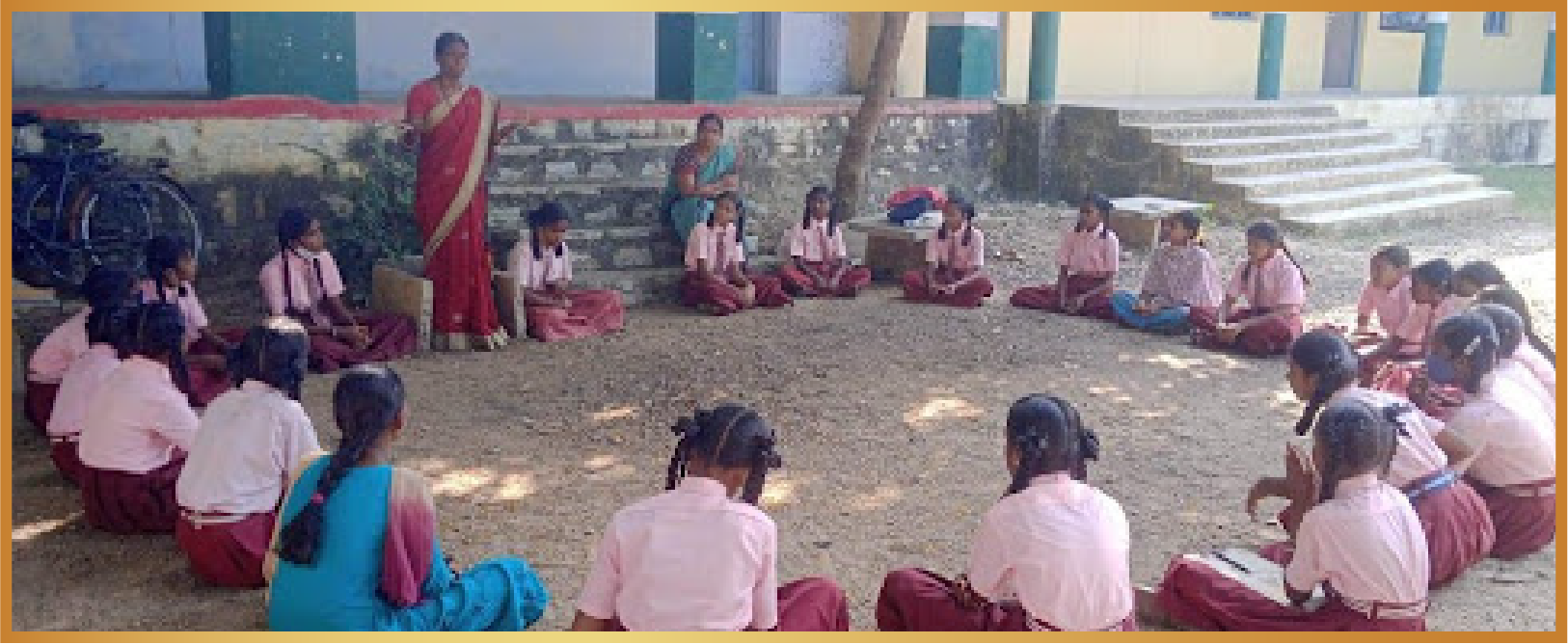
2023 Plans
● Ensuring 100% retention of the children who have transited to their respective classes
● Removing 30 children from labor and mainstream them in the formal education
● Ensuring no new child labor is formed and no new drop outs are found
● Forming 3 boys collectives in three villages.
● Conducting 3 child rights campaign
● Implementing ‘Parents Life Skills Module’ among a minimum of 100 parents
● Ensuring the Gram Panchayat sanctioned infrastructure facilities in 10 schools are accomplished.
2022 Grant Disbursed – $27,779
2023 Budget
